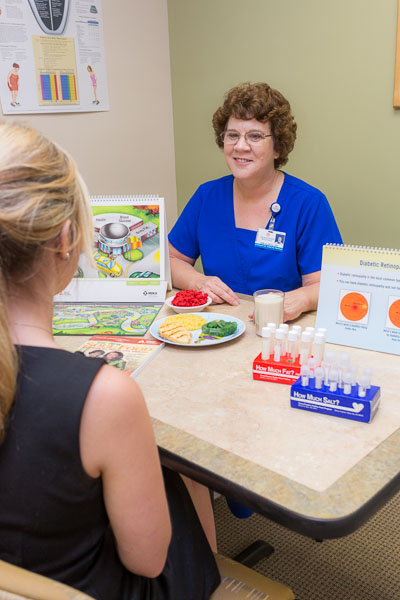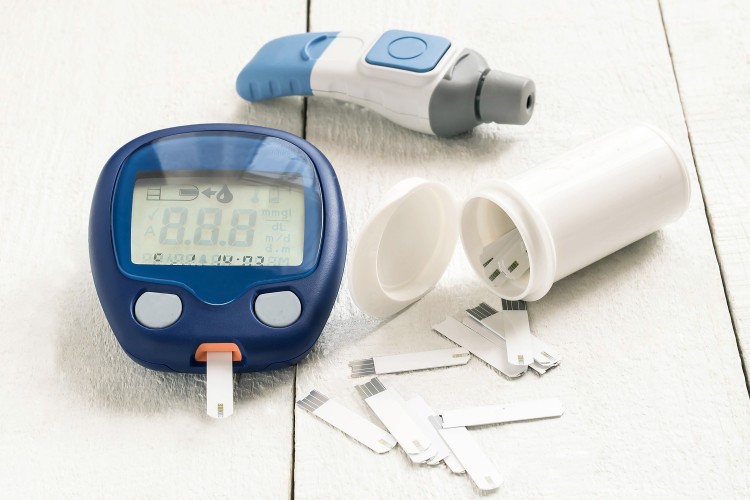BRUNSWICK, Georgia: March 22, 2022 – According to the Center for Disease Control (CDC), more than 37 million people in the United States have diabetes, and one out of every five individuals don’t know they have it. Known as the “silent killer,” diabetes is the seventh leading cause of death in the United States.
American Diabetes Day, observed every fourth Tuesday of March, is part of a movement to create awareness about the silent disease that affects more approximately 11.3% of the U.S. population. In support, Southeast Georgia Health System is committed to increasing awareness and providing comprehensive diabetes education to patients, their families, and the community.
“Diabetes is a chronic, lifelong disease that has become more widespread in the United States, with Georgia ranking above the national average of diabetes diagnoses,” explains Sue Ullrich, R.N., MA.Ed., CDCES, diabetes program coordinator, Southeast Georgia Health System. “When you eat, your body breaks down carbohydrates into glucose. This triggers the pancreas to release a hormone called insulin, which acts as a carrier that allows glucose to enter the cells from the blood. If your body doesn’t produce enough insulin to manage glucose, it cannot function or perform properly. This leads to symptoms of diabetes.”

There are four types of diabetes.
· Type 1: the pancreas does not produce insulin. Previously known as juvenile diabetes, type 1 diabetes is most often diagnosed in childhood.
· Type 2: the most common form of diabetes; the pancreas doesn’t make enough insulin, or your body can’t use it effectively. The risk of developing type 2 diabetes increases with age. Other risk factors include obesity and a family history of diabetes.
· Prediabetes: Blood glucose levels are higher than what is considered normal, but they’re not high enough to qualify as diabetes. Before people develop type 2 diabetes, they almost always have prediabetes.
· Gestational diabetes: A form of high blood sugar affecting pregnant women.
With the help of diabetes medicines and a healthy lifestyle, everyone can learn to manage their condition and live a long, healthy life. However, diabetes that is not well managed can damage blood vessels and organs, leading to severe complications such as heart disease, stroke, kidney disease, nerve damage, and eye disease.
“Although diabetes is a very serious disease, it can be controlled with healthy eating, exercise, and medication,” adds Ullrich. “It’s important that you work with your doctor to keep your blood sugar levels normal through special meal plans and regular physical activity. Even small changes can have a huge impact on managing diabetes and preventing it altogether.”
Southeast Georgia Health System’s free diabetes education programs have been recognized by the American Diabetes Association for providing Quality Self-Management Education and Support. The education programs help patients and their families learn how to cope with this serious disease and maintain a healthy lifestyle. For more information, visit sghs.org/diabetes-education or call 912-466-1689 for the Brunswick Campus or 912-576-6488 for the Camden Campus.

